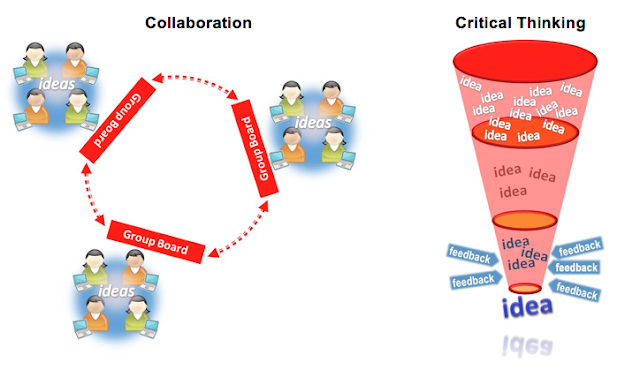FS@SG Research Initiative: CN-ECT for Mathematics
Classroom Networks - Educational Collaboration Technology for Mathematics focuses on fostering critical thinking and deepening conceptual understanding of mathematics topics supported by highly collaborative technologies. This aligns with the school’s vision to develop students to become “creative thinkers and Innovators” who are “collaborative and independent problems solvers”. In addition, this research initiative will study how to engender long term pedagogical change in teacher practice by considering the structure of the classroom, including curricular resources, professional development and assessments, which is a sustainable approach to innovations.
- Link to NIE Learning Sciences Lab: SST IDM Project (CN-ECT for Maths)
- Singteach article: Transforming Math Lessons with New Technology
- Showcase in EduTech Seminar 2011
- Showcase in EduTech Seminar 2012
- This presentation focused on the pedagogical approaches as well as the supporting asynchronous environment to support students learning in a Maths classroom. Through the demonstration, participants learn how the pedagogy is weaved into the activities in the collaborative networked environment.
FS@SG Research Initiative: Mobile Learning
This project aims to examine the affordances of 1-to-1 mobile technologies that support and enable pervasive knowledge building beyond the four walls of the classroom. The advent and advances of mobile computing and social networking have made possible the continuity of the learning experience and collaboration across different contexts on a seamless learning platform. Thus, the design of learning scenarios to help students develop critical thinking and collaborative meaning-making skills forms one of the fundamental objectives of this research project.
Research has been conducted on learning activities that use mobile technologies to reinforce learning by bridging the gap between theory and the real world observation; where students are able to directly and physically explore our world for in-situ knowledge building.
The design of the mobile learning experience adopts the F.A.T model
Example 1: Mobile Learning Trail @ Singapore River, on 30 August 2012
Example 2: Mobile Learning Trail, 2011
Example 3: Mobile Learning Trail @ Sentosa, 2010
- Link to NIE Learning Sciences Lab: SST IDM Project (Mobile Learning)
- Monograph: Advancing Collaborative Learning with ICT: Conception, Cases and Design
- Paper: Location-based Collaborative Learning at a Geography Trail: Examining the Relationship among Task Design, Facilitation and Discourse Types
- Paper: Learning Futures of the Future School: Creating Knowledge Building Spaces to Promote 21st Century Learning Skills
- Showcase in EduTech 2012
FS@SG Research Initiative: CN-ECT for Languages
The design of learning experience adopts the FUNNEL model that emphasizes the development of critical thinking skills through collaboration in a networked environment.
Example 1: How learning unfolds in the English Language Classroom
Example 2: How learning unfolds in the Chinese Language Classroom
- Link to NIE Learning Sciences Lab: SST IDM Project (CN-ECT for Languages)
- Paper: Towards a Model for Rapid Collaborative Knowledge Improvement in Classroom Language Learning
- Showcase in 2011 EduTech Seminar
FS@SG Research Initiative: WiMVT
- Link to NIE Learning Science Lab: SST IDM Project (Science WiMVT)
- Paper: Designing a Web-based Collaborative Inquiry Environment for Students’ Learning Difficulties Mediated by Modeling and Simulation Tools




No comments:
Post a Comment